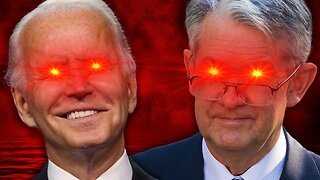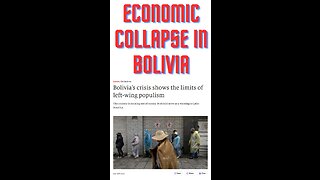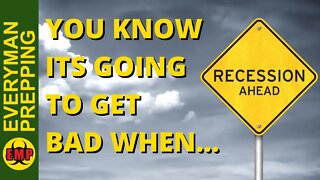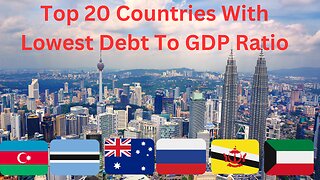Bird Flue in Brazil ~ Government Over Reach ~ Real Recession: What does it look like
Brazil, the world's leading exporter of chicken meat, has declared a 180-day state of animal health emergency following the country's first detection of the highly pathogenic avian influenza virus (H5N1) in wild birds.
This decision comes after the confirmation of eight cases of H5N1 in wild birds, including seven in Espirito Santo state and one in Rio de Janeiro state. While the presence of avian flu in wild birds doesn't trigger trade bans per World Organization for Animal Health guidelines, the government remains vigilant due to potential transmission risks to commercial flocks.
In response to these confirmed cases, the Brazilian agriculture ministry has established an emergency operations center to manage and evaluate national measures related to avian influenza.
Despite the main meat-producing regions being situated in the south of the country, the government is alert to the risk of the disease spreading. Meanwhile, Brazil's biggest chicken exporter, BRF SA, saw a slight decrease in shares after the government's announcement.
Additionally, tests from 33 suspected human cases of avian influenza in Espirito Santo returned negative results for the H5N1 subtype over the weekend.
===
A real recession is characterized by a significant decline in economic activity across multiple sectors, lasting more than a few months. It's typically identified by a fall in GDP (Gross Domestic Product), income, employment, manufacturing, and retail sales.
The impact is wide-ranging, affecting businesses, individuals, and governments. Companies may experience decreased revenues, leading to layoffs or closures. Unemployment rises as jobs become scarce, and individuals may face financial struggles due to lost income or devalued assets. Government revenues can also decrease due to lower tax income, potentially leading to increased borrowing and national debt.
Despite its negative connotations, a recession can also spur changes and improvements in economic structures and practices. As businesses face hardship, they may become more innovative and efficient to survive, potentially leading to long-term improvements.
Moreover, recessions can create opportunities for new businesses to emerge, meeting new market needs or taking advantage of changing economic conditions. Government policies often shift to stimulate the economy, promoting job creation, and enhancing financial systems to prevent future recessions. Thus, while a real recession has profound and often distressing impacts, it also provides opportunities for growth and adaptation in the long run.
===
Subscribe now and become part of the Unspoken Truth Community! 🙌
👉 JOIN OUR COMMUNITY: https://theunspokentruth.com.au/
🎙Listen on Spotify: https://open.spotify.com/show/7KF9b8M...
📱 Follow us on Telegram: https://t.me/unspokentruthreal
🐦Follow on Twitter: https://twitter.com/unspokentruthAU
🎥 Follow us on YouTube: https://www.youtube.com/@unspokentruthofficial
📸 You can connect with Rob directly via Instagram: https://www.instagram.com/rob.brus77/
🎥 Watch Ed's YouTube channel here: https://www.youtube.com/@heyed7496
👉 If you want to do a collab reach out via email or Insta
💥 Keep watch, stay safe and watch out for all the scammers out there...
-
 15:19
15:19
Matt Kohrs
1 year agoThe Government Is Crashing The Market || Recession Confirmed!
15.3K89 -
 8:03
8:03
Meta Stats
3 months agoShocking Truth: TOP 20 Countries Drowning in Debt!
2 -
 8:35
8:35
Rude A.I. News
1 year agoAI Explains the COVID Economy
70 -
 1:08
1:08
The Last Capitalist in Chicago
1 year agoEconomic Collapse in Bolivia
185 -
 23:16
23:16
ITM Trading
2 months ago $0.25 earnedIs the Fed “Creating a Crisis” to Avoid a Global Financial Meltdown? Michael Gayed (leadlagreport)
388 -
 0:54
0:54
investingsecretswithkevinattride
1 year agoIs this really a bad recession? What you need to know about finances and inflation
15 -
 7:52
7:52
Everyman Prepping
1 year agoControl The Money...Control The People - The Fed Central Bank CBDC Is Coming - We Must Stop It
24 -
 10:37
10:37
Everyman Prepping
1 year agoThe Media Finally Talks About the Recession - It's Going To Be Bad!
2 -
 8:32
8:32
Meta Stats
3 months agoCountries That Are Financially Unbreakable in 2024! #DebtFree"
51 -
 7:25
7:25
WorldMAG
1 year agoHOW TO SURVIVE AN ECONOMIC RECESSION
5